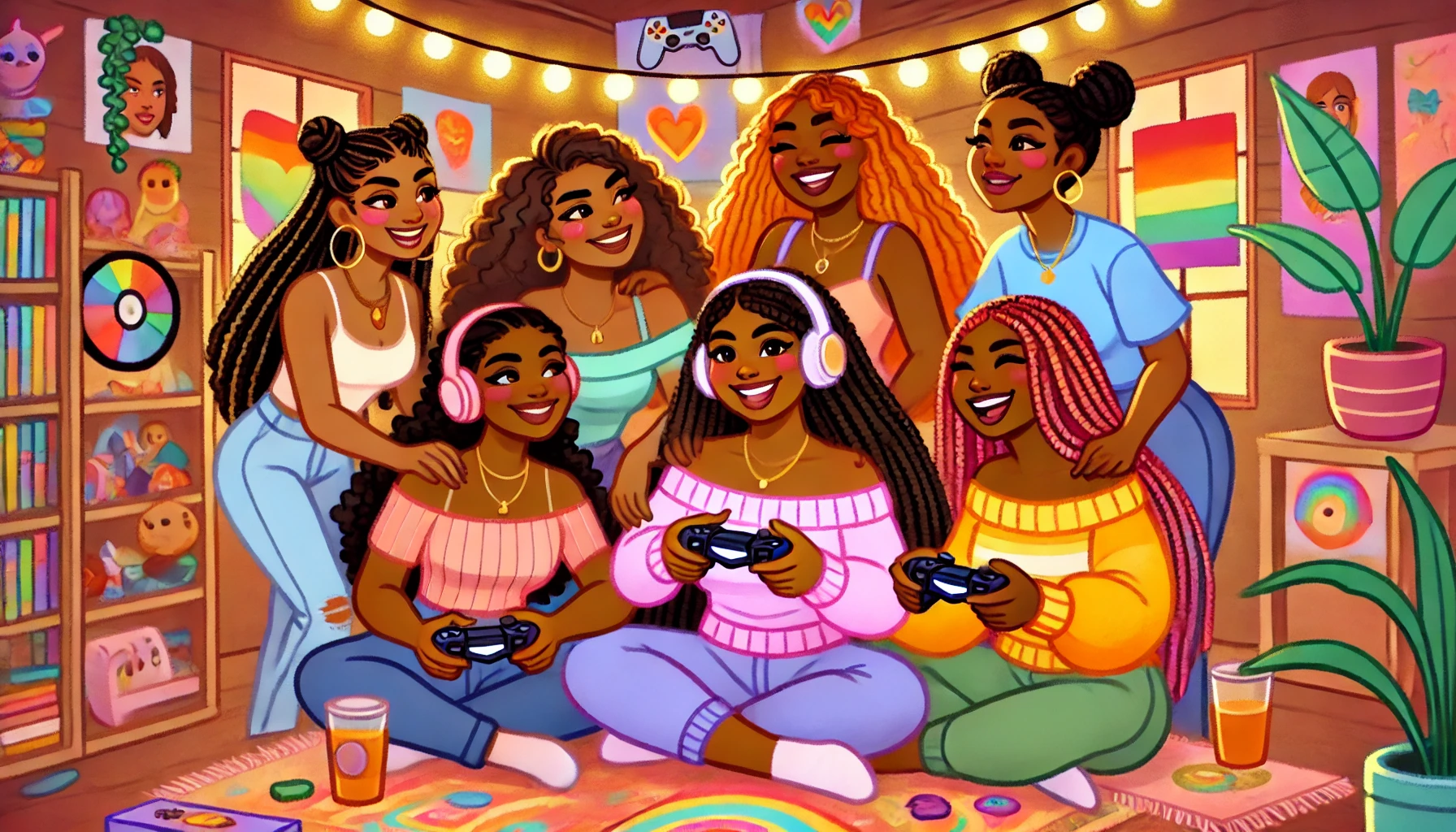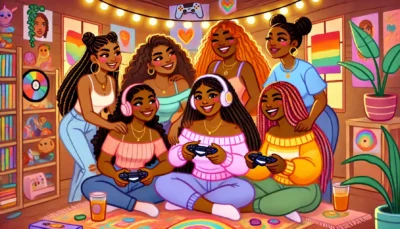Boundaries are powerful. They protect us, define us, and give us the space to grow. But what happens when others try to control our boundaries that
Boundaries are powerful. They protect us, define us, and give us the space to grow. But what happens when others try to control our boundaries that we need for respite? For rebuilding? For regeneration? For self-care?
To get away from harm, slurs, slander, snideness, and overall bad treatment.
(When my child was a teenager, and just trying to have fun playing games online; I heard the horrible things he and his friends were called by random strangers for myself. I was disgusted by the things that were said to them. Even worse, it was not uncommon.)
This happens when Black women and girls create spaces just for themselves, like in gaming competitions. Suddenly, outsiders demand to be included, questioning, “Why separate yourselves?” As natural community builders, women and girls clash on this issue more frequently than men. Start a healing group or a task force for one demographic facing more violence and abuse than others, one troubled area of the city, and there will be conflict.
But these same voices often mock affirmative action and other tools meant to open doors for Black people for economic and educational advancement.
Let us in when it is time to have fun and to hear all about the inner workings of your culture, and all the stories of pain and suffering.
But go far, far away when it is time to get paid, get educated, or get opportunities.
This isn’t just about inclusion. It’s about control.
This also isn’t new. Others have taught and written about it before:
- Controlling Image Theory (Patricia Hill Collins) shows us how stereotypes are used to control how Black people set boundaries. The message is clear: “Be inclusive, but only on our terms.”
- Boundary Maintenance explains how dominant groups set the rules for when boundaries are “acceptable.” When Black women and girls create safe spaces, it threatens the control others want to keep.
- Power Hoarding reveals the double standard: They want to control resources and opportunities, but only if they get to decide who benefits.
- Cultural policing occurs when dominant groups enforce norms and rules about how marginalized communities are allowed to express their identities. This often includes criticizing or controlling cultural practices while simultaneously appropriating elements for their own benefit. It restricts authentic self-expression and reinforces power imbalances.
- Cultural Hegemony coined by Antonio Gramsci, refers to the domination of a culturally diverse society by the ruling class, who manipulate the culture so that their worldview becomes the accepted norm. This is why Black spaces are questioned, while predominantly White spaces are normalized.
This isn’t just about gaming. It’s about how boundaries are manipulated to control who belongs and who doesn’t. Boundaries are put in place to protect and prevent harm. But too often, society wants to dictate the health and wellness boundaries of Black women and girls.
The biggest problem is that the very dynamics that silence people outside the group are also at play inside the group, preventing meaningful progress and keeping those who came to be heard from truly having a voice. People tend to slip back into the dynamics that they are used to living in.
I want to keep this short, but I will continue to cover the problems that arise in future posts. My area of interest, education, and expertise is often centered around healing and personal growth groups. Some people choose to gather with people who share various interests, cultural backgrounds, religion, beliefs, values, ethnicity, disability, marital status, age, race, ++++. Maybe just for a season to advance an aspect of life.
Though, some people do not understand how this differs from employment, housing, and education.
Healing, wellness, and fun spaces designated for specific demographics are sacred grounds for restoration and joy. These spaces exist not to exclude but to protect—offering a sanctuary where individuals can simply be, without the burden of educating others on their humanity. In these moments, the focus is on healing, not teaching; on being understood, not explaining.
The underlying issue is power and control—who gets to define inclusion and on whose terms. The dominant group wants to control the narrative and conditions of separation to maintain social hierarchies. This is why Black girls creating their own spaces are seen as “divisive,” while exclusionary practices in employment or education are normalized.
Anyway, community is a necessity. Build yours. Find yours. Keep yours.
Your boundaries in healing are yours to define. Don’t let anyone tell you otherwise.


